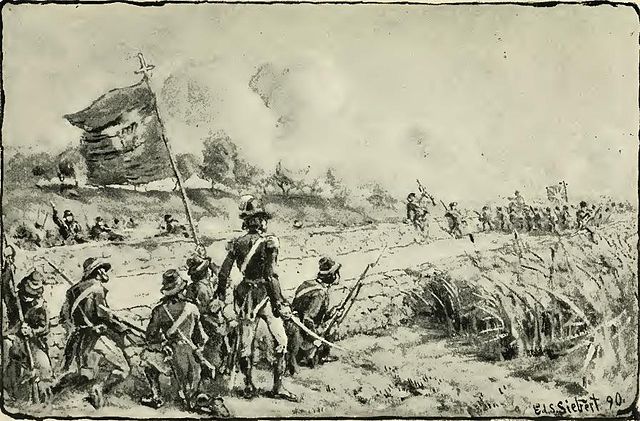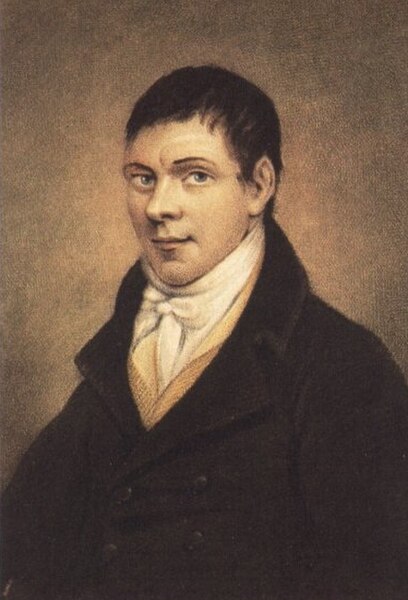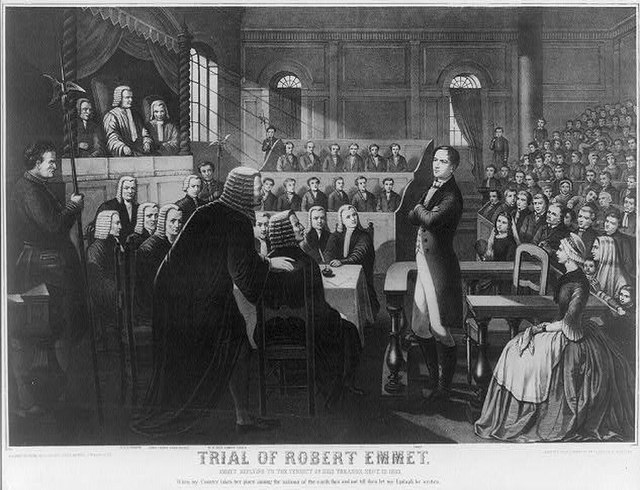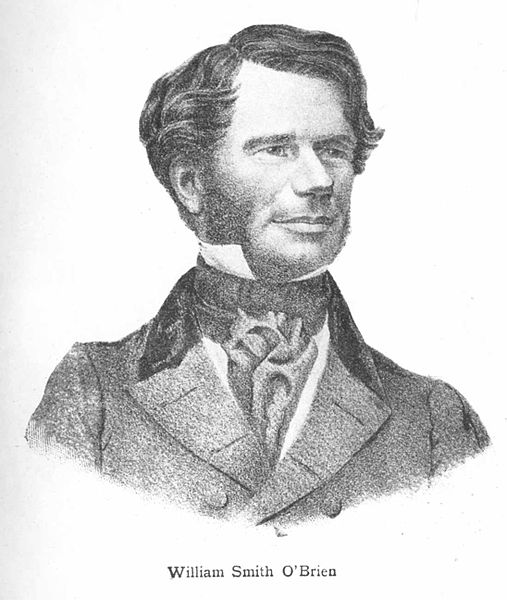Theobald Wolfe Tone, posthumously known as Wolfe Tone, was a revolutionary exponent of Irish independence and is an iconic figure in Irish republicanism. Convinced that, so long as his fellow Protestants feared to make common cause with the Catholic majority, the British Crown would continue to govern Ireland in the interest of England and of its client aristocracy, in 1791 Tone helped form the Society of United Irishmen. Although received in the company of a Catholic delegation by the King and his ministers in London, Tone, with other United Irish leaders, despaired of constitutional reform. Fuelled by the popular grievances of rents, tithes and taxes, and driven by martial-law repression, the society developed as an insurrectionary movement. When, in the early summer of 1798, it broke into open rebellion, Tone was in exile soliciting assistance from the French Republic. In October 1798, on his second attempt to land in Ireland with French troops and supplies, he was taken prisoner. Sentenced to be hanged, he died from a reportedly self-inflicted wound.

44 Stafford Street, Dublin where Wolfe Tone was said to have been born.
Statue of Tone, Bantry, County Cork
In End of the Irish Invasion; — or – the Destruction of the French Armada (1797), James Gillray caricatured the failure of Hoche's expedition
One of the inscribed flagstones on the steps leading to the grave of Theobald Wolfe Tone
Irish republicanism is the political movement for the unity and independence of Ireland under a republic. Irish republicans view British rule in any part of Ireland as inherently illegitimate. An ideology since the 17th century, various methods have been employed to achieve the republic, including rebellions and paramilitary campaigns. Although the makeup of republicanism has been multidenominational, its relation to catholicism increasingly became central.
The Battle of Killala marked the end of the rising
Michael Dwyer
Depiction of Robert Emmet's trial
William Smith O'Brien, leader of the Young Ireland movement








